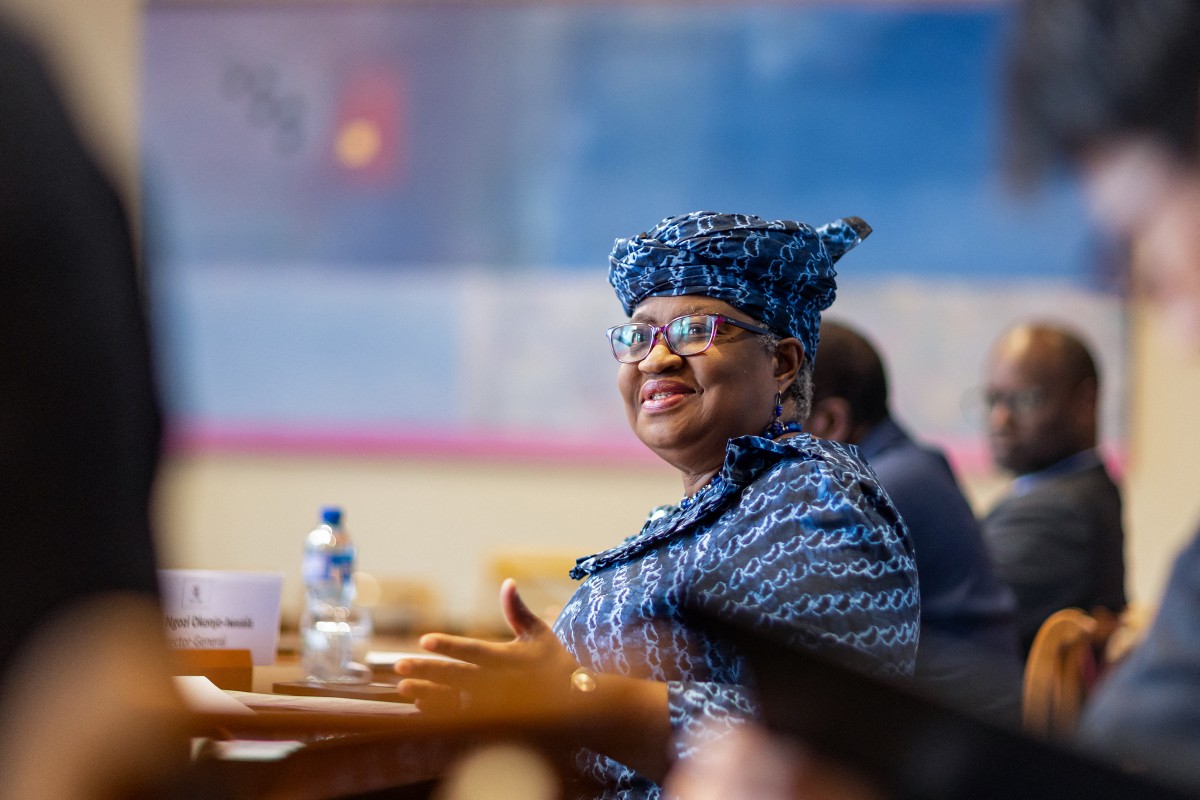Geneva, Switzerland– The head of the World Trade Organization insisted Friday the WTO was still relevant as it prepares for its main gathering with few major deals on the table.
WTO members’ trade ministers have their biennial meeting in Abu Dhabi from February 26-29, at which they could put the final touches to a further fisheries deal.
But other potential agreements seem stuck in the weeds as anxiety swells over the impact of current geopolitical tensions.
The global trade body’s chief Ngozi Okonjo-Iweala dismissed claims that the organization was no longer relevant.
“I reject the use of the word irrelevant,” she told journalists at the WTO’s headquarters in Geneva.
“People don’t realize, they’ve taken for granted that 75 percent of world trade is taking place on WTO terms: 75 percent, in spite of all the FTAs (free trade agreements) and regional agreements.
“Can you imagine if those rules did not exist to govern world trade? What would it be?
“Be careful what you say.”
The Abu Dhabi talks will be the 13th ministerial meeting since the WTO’s creation in 1995.
The WTO is hoping for results, particularly on fishing, agriculture and electronic commerce, but disagreements remain between the organization’s members.
Okonjo-Iweala said her team was working around the clock to draft agreements for the talks.
She said the mood among diplomats finessing the draft texts for the Abu Dhabi meeting was more positive and constructive than before the last ministerial meeting in 2022, held at the WTO’s Geneva headquarters.
However, the “positive atmosphere has to be mixed with a dose of realism because negotiating positions are still quite tough” notably on agriculture, she added.
They were working to seal new agreements on tackling subsidies that promote overfishing, and extending the practice of not imposing customs duties on electronic transmissions.
‘Free-for-all’ warning
Okonjo-Iweala said she expected the meeting to be tough due to the “economic and political headwinds”, from the war in Ukraine, the attacks in the Red Sea, inflation, rising food prices and economic difficulties in Europe and China.
She also noted the elections scheduled this year around the world, which she said affected how the countries concerned negotiate.
The US presidential election in November is being closely scrutinized in WTO circles because it could see former president Donald Trump return to the White House.
In his previous term, Trump increased numerous customs duties and threatened to pull the United States out of the WTO.
Okonjo-Iweala said the WTO was focused on implementing the appropriate reforms, no matter who comes to power in any country.
If “the WTO becomes irrelevant, everyone including you and me will be in trouble”, said Okonjo-Iweala.
“If the WTO doesn’t exist… it means the rules don’t matter.
“Then what happens is a free-for-all. Anyone can do what they like, you can get up and put whatever tariffs you like on someone else.”

